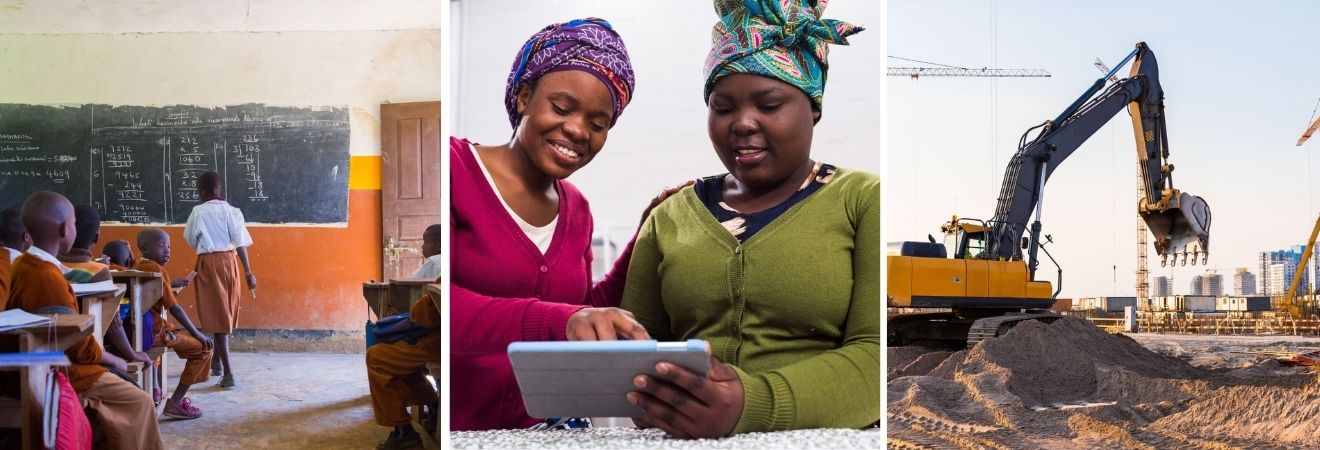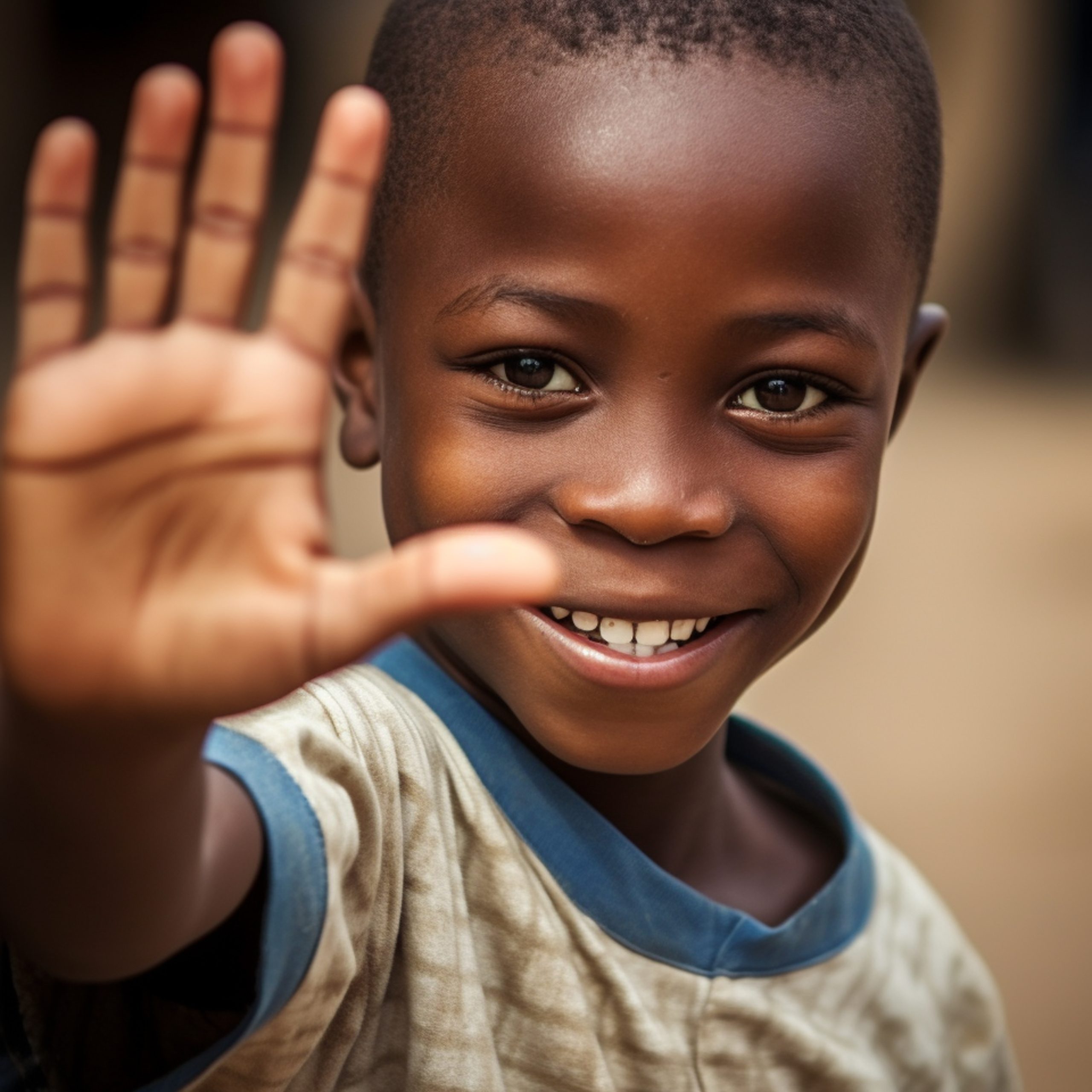BUILDING THE MIDDLE CLASS: TRANSFORMING THE DEMOCRATIC REPUBLIC OF CONGO’S FUTURE
by Mostafa Sleem updated on May 21, 2024
The Democratic Republic of Congo (DRC), renowned for its vast wealth in natural resources and status as the second-largest country in Africa, paradoxically remains one of the poorest nations globally, marked by a significant class divide. Despite its abundant resources, the DRC has endured decades of corruption and mismanagement that have severely hindered its development. To cultivate a thriving middle class and unlock the nation’s full potential, a multifaceted approach encompassing economic, social, and institutional reforms is imperative.
The ongoing instability in the eastern regions has resulted in the displacement of millions of Congolese, with the government facing significant challenges in providing adequate support and security. These challenges are compounded by inadequate infrastructure, which hampers the movement of goods and people. This instability exacerbates the nation’s poverty and significantly hinders development efforts.
One of the most significant challenges facing the DRC is its substantial digital divide. The International Telecommunication Union (ITU) reported that internet penetration in the DRC was a mere 18.2% in 2021. This digital gap limits access to global information and opportunities, hampering the country’s ability to integrate into the global economy and boost its regional and international trade. Furthermore, the education system has failed to produce a skilled labor force, restricting the population’s development and their ability to diversify their skillsets and create a diversified market.
In recent years, the DRC’s government has turned to its diaspora for assistance, boosting its foreign affairs to engage with its diaspora to promote their return with their specific skill sets. These individuals, having studied and gained experience abroad, were expected to bring positive change and innovative ideas to promote entrepreneurship and SMEs. However, many have succumbed to the same issues of corruption and mismanagement, prioritizing quick wealth generation over long-term development. South Korea’s development, marked by investment in education, innovation, and strong industrial policies that supported key sectors, serves as a valuable model.

To diversify the country and build a robust middle class, the DRC must focus on human development, particularly education and skill development. Providing access to quality education at all levels is crucial, involving improvements in infrastructure, teacher training, and curriculum relevance. UNESCO reports that the literacy rate in the DRC was around 77% in 2020, but there is significant room for improvement, particularly in rural areas. The government could also open doors for regulated private schools to ensure that the skills of the Congolese are utilized within the country for its sovereign interest. Collaborations between private and public sectors to offer vocational training and skill development programs are essential, equipping individuals with the skills needed for the job market, especially in high-demand sectors. This approach can set the DRC on a course for the next 15 years, preparing a new, educated generation.
Infrastructure development is another critical area for fostering economic growth. Today, it is almost impossible to achieve equity for all in the DRC, as some provinces still lack basic necessities such as roads, health institutes, and digital inclusion. Energy supply is also essential for industrial development and improving living standards. In 2021, only 19% of the population had access to electricity, highlighting the urgent need for energy infrastructure development.
China’s rapid growth and expansion of its middle class is a prime example. Driven by economic reforms, investment in infrastructure, and significant improvements in education and healthcare, China is set today to be a dominant power, a rival to the USA. Developing infrastructure such as roads, ports, and communication networks can facilitate trade, reduce costs, and attract businesses.
As the world transitions from the digital era to the AI era, the DRC has yet to fully embrace these advancements. E-government deployment is crucial for efficiency, but connectivity and technology can drive innovation, economic growth, and the creation of high-paying jobs. Despite several measures to bridge the digital gap, development remains slow. Vodacom has made significant strides in bridging digital penetration in the DRC, covering almost 61% of the country, but many areas still lack access to cell phones. Promoting digital literacy and expanding internet access can open up new economic opportunities and enhance productivity.
Economic and social development also hinge on financial inclusion. Following a loss of faith in the banking sector, only 7% of the DRC’s population is banked, according to a report by McKinsey & Company. Banks such as Equity BCDC (formerly Pro-Credit and BCDC) and TMB have been acquired by bigger banks, potentially facilitating the development of the financial sector. With Equity’s mission to champion socio-economic development, competition between Equity and Raw bank is now fierce, forcing both to compete to provide the best services in the DRC.
Facilitating access to credit, savings, and insurance services for individuals and small businesses can promote entrepreneurship and economic participation. Supporting microfinance institutions that provide financial services to low-income households and small enterprises can help them grow and stabilize their incomes, especially in rural areas.

However, economic growth and stability depend on creating a favorable business environment. Singapore’s development strategy, which included policy reforms, investing in human capital, and maintaining political stability, offers valuable lessons. Implementing policies that promote stable and sustainable economic growth is essential. This includes maintaining low inflation, sound fiscal policies, and a stable exchange rate. Reducing dependency on a single sector (e.g., natural resources) and promoting a diversified economy can help create jobs and stabilize incomes. Ensuring the rule of law, property rights, and contract enforcement can create a stable business environment. Implementing anti-corruption measures and promoting transparency can improve public trust and attract investment.
Agriculture is a promising field, with more than 85 million hectares of arable land. The country can promote regional integration to provide food to its neighboring countries. With a favorable business environment and incentives to attract foreign direct investment (FDI), the DRC can spur industrial growth and job creation.
Establishing social safety nets, such as unemployment insurance and healthcare, can protect individuals from economic shocks and reduce poverty. Enforcing labor rights and promoting decent working conditions can improve job quality and income security.
Although the DRC has a long journey ahead to build a robust job market capable of creating a thriving middle class, fostering economic growth, and enhancing the overall quality of life for its citizens, the path is clear. The citizens of the DRC have long lived in vulnerability and continued turmoil, and it is time to provide them with assurance for a better future. While the DRC holds immense potential as a solution country for the world, it must first become a solution for its own citizens.
Addressing the main issues of a challenging business climate, poor infrastructure, and a lack of skilled workers is crucial. Both the private and public sectors must collaborate to find ways to elevate the lives of the Congolese people, helping them live up to their nation’s reputation for wealth and capabilities. By focusing on comprehensive reforms in education, infrastructure, and financial inclusion, and fostering a favorable business environment, the DRC can set the stage for a brighter, more prosperous future.
The commitment to these changes will not only unlock the country’s potential but also ensure that the benefits of its abundant resources and strategic position are felt by all its citizens. The journey may be long and arduous, but with determination and coordinated efforts, the DRC can transform its socio-economic landscape, creating a resilient middle class and a thriving nation.



